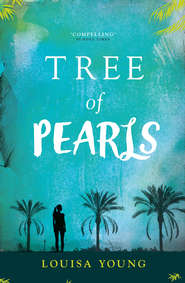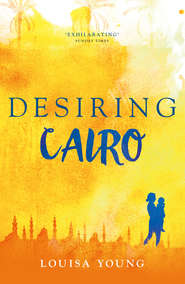По всем вопросам обращайтесь на: info@litportal.ru
(©) 2003-2024.
✖
My Dear I Wanted to Tell You
Настройки чтения
Размер шрифта
Высота строк
Поля
*
As the train taking him away clanked and shuddered into movement, Purefoy felt a sharp stomach-tug of a harsh and guilty joy. Clanking and shuddering away from death, away from corpses, away from damp, away from mud, away from groans, away from rats, away from the miasma of pure and constant fear . . . For several weeks he would not have to kill anyone, and no one would try to kill him. Thank you, Sir Alfred, thank you thank you thank you thank you.
He prayed that officer training would teach him to hate the Hun individually. He had been having trouble maintaining the idea that the boys the other side of no man’s land were in themselves any different from the boys over this side, and the faces of the old knife-grinder and the anarchist popped up in his mind with disconcerting regularity. The gas wasn’t their choice. Kaiser Bill was Queen Victoria’s grandson. Franz Dahrendorf! That was his name. The anarchist.
The land now outside the window was green. Oh, God, it does all still exist.Sheep. Leaves.
You will, at some stage, if you live, have to go back, Purefoy, where there are sheep and leaves and Sunday lunches. You will have to go back into it and not be brutal.
Can you bear that in mind? Is there any room for that?
When he reached his billet in Amiens, the stairs confused him, and the sheets on the bed seemed alien. He wrote a letter to Sir Alfred: short, and to the point. Then he lay down on top of the alien sheets, carefully, his boots still on, and stared up at the ceiling, following the line of its moulding round and round.
*
It seemed the rush of enthusiasm that had rendered Purefoy a Second Lieutenant had been premature. Recruitment had not, after all, declined quite as had been feared, and there was, after all, no shortage of young men of education who could be called Second Lieutenants and released to the Western Front. Also, someone, somewhere, had decided that in the interests of social stability officers promoted from the ranks should not go back to the men they had served alongside. ‘In other words,’ he wrote to his parents, ‘they don’t know what to do with me.’ So he was given leave.
Second Lieutenant Purefoy sat on a single bed in a room above a pub in Dover. He was going to London. He would visit his mother and father and his sisters . . . God, his sweet little sisters. He wanted to send them a picture postcard right now, a funny dog in a tartan costume, with a monocle, or something, but then they’d know he was in Blighty . . . oh, I can’t go home . . . but I’ve got to . . . and I’ll see Sir Alfred and Mrs Briggs. For a split second, before memory caught up and kicked him, he found himself thinking that he might visit Terence.
He tried to picture his family and friends in London. He assumed they still existed. After all, here was a single bed in a room above a pub in Dover.
What the fuck could he say to any of them?
Well, there’ll be none of that swearing for a start.
He went down to the bar. Drinking would be one way of dealing with this detachment, this disbelief. He stared at the bottles, the beer barrels, the little taps: crimson wine, black and ivory stout, oily invisible gin. He stared at the drunken soldiers around him, and the blowsy girls. Sex. He recalled the feeling of the curve of a hip under his hand. Would any hip feel like that? Send the frisson, the glow, the shot of warmth and possibility up his veins, under his skin, to his heart and his belly and the back of his eyes?
Now was the time to change the mood. How was he to do it?
He went upstairs, and finally wrote his will, on the pages labelled for the purpose in the back of his Soldier’s Small Book (paybook, military service record, instructions on how to avoid bad feet – rub soap into socks). He left everything to his mother. He’d get the train as soon as he had worked out what to say.
The food was bloody brilliant. Oxtail, dumplings, steamed pudding for dinner. Fish and chips and chocolate for tea. He bought a box of twenty-four bars of Fry’s Chocolate Cream, and ate them sitting on the narrow bed. He bought two more boxes, made a parcel and sent one to Ferdinand with a note: ‘You’re to eat all of these yourself: NO SHARING’, and the other to Ainsworth: ‘PLEASE HAND THESE OUT TO DESERVING CASES.’
He had a second bath some nights, and had to pay extra for the hot water. He noticed he had given himself a little pot belly with all the food.
He couldn’t go and not talk to them. He couldn’t talk to them.
He lay on his back with his new officer shoes off and one by one ran through the people he might talk to, and what he could or couldn’t say to them. Everything he had to say: I love you, it’s hell, I walk on corpses and breathe death, it’s only a matter of time before I prove a coward, and I don’t want to be a coward, but I don’t understand, either I kill people, or I’m a coward, that’s the choice, someone somewhere set it up and I get no vote, I can’t say, ‘I don’t accept that’ – and I have accepted it, for a year I’ve accepted it, this is the situation but I don’t understand how I got here, how it is just going on and on, and nobody mentions it, and if you don’t like it they think you’re mad, and you get shot, for cowardice, desertion . . . and your own men, your companions, your brothers, have to shoot you . . . and I’m so fucking scared out there every day, every night—
and now they’ve made me a fucking officer—
STOP IT.
You’re a soldier, Riley, a good soldier and a decent bloke. For a bleak second he desperately wanted to go back to the front, where there was no time or space in a man’s mind to think about anything beyond good soldier, decent bloke. No – officer. It’s different. I will have responsibility.
Yes, but no actual authority.
They were proud he was an officer now. That was the kind of thing people at home wanted to hear.
He didn’t want to think of Nadine as ‘people at home’. He wanted Nadine to know and share every single damn thing he ever knew or did on this earth, and to understand, and to share hers too . . . and he would rather get a shell tonight than have Nadine even hear of the possibility of the things he had known in this past year . . . and how do you get round that one?
And you’re leaving her alone, remember? He hadn’t answered her letter in response to his Christmas card.
Yes, but I . . .
He looked out at the sea. Many nights he could hear the guns. On the seafront, some philanthropist had put up an iron sign on an iron leg, pointing out what was where across the sea: Calais, Dieppe, Dunkirk . . . Rome, Amsterdam, Moscow. He held his hand out in front of his face, like a divider. This side, to the right, ours. That side, to the left, theirs. Down the middle in the sump, us lot.
Amsterdam, where she wanted to go, was on the other side. Van Eyck and Rembrandt and Franz Hals and . . . a furry peach, a silver-bloomed plum, striped roses and streaked tulips, vanilla and raspberry, arched stems and green beetles gleaming and one little worm-hole . . . bright sunflowers whirling . . . a branch of almond blossom.
What a pompous, self-important, sententious, over-imaginative young man I was. What a thoughtless, useless, unkind . . . to leave without seeing Mum. To make all those decisions about what people were and what that meant – that Sir Alfred was a queer, and would not forgive me for staying out the night, that the Waveneys would never let me marry Nadine, that because Terence did a queer’s thing to me I had to . . . Well, I didn’t know, did I, what I was going into.
So now, now that that world was so distant, and that attitude even more so, how could he pop back into it for tea and a chat? How could he write to that world, saying: ‘I hope this finds you in the pink as I am . . . It’s all pretty quiet here . . . Please send any kind of tobacco, and socks.’
He went back to his room, went back to bed. Turned his pillow over.
He slept all right, though. Dreams, obviously. Not very nice ones. But nothing compared to some of the lads.
*
Captain Locke had said, in that charming way of his, ‘If you pass through Sidcup on your way to town, pop in and see Mrs Locke, would you? It’s not far from the town. Tell her I’m all right? You won’t have time, of course, but . . .’
Purefoy was reminded of how the posher someone was, the less they seemed to care about class – those educated, wealthy, dreaming men who don’t have a simple clue what is not possible when you are poor. He both loved and hated them for their genuine ignorance. How marvellous, how ridiculous, that it should be possible. He allowed himself to wonder what Mrs Captain Locke would think of him, Purefoy, turning up. The trenches were in some ways a leveller, to those who took it that way. But the advances Purefoy had craved were only cultural and matrimonial, wherein the Flanders mud had offered no progress, other than the odd burst from Captain Locke’s gramophone, and the occasional expression in Captain Locke’s amiable blue eye that showed he, too, knew of the existence of Better.
But Private – whoops – Second Lieutenant Purefoy calling on Mrs Captain Locke of Locke Hill? Dear God, no.
Chapter Five
Sidcup, June 1915
Julia stood in the hall at Locke Hill, little feet firm on the black and white tiles. The doormat was crooked. She straightened it.
It was rather a beautiful morning outside. She could – she should – be out on the lawn, admiring the sun in the lilac and smelling the early roses. A cup of tea, perhaps, in the little Sitzplatz Peter had arranged beyond the hornbeam. She must find another name for it. Or a stroll by the stream. Max would want a walk.
She had heard the phone go, and she heard Rose deal with it. Rose was so good – such a blessing to have such a sister-in-law. Cousin. Peter’s cousin. Cousin-in-law. It was a shame she was away so much with her hospital, and lovely when she came back for a visit.
Julia went into the sitting room, hoping to find some tiny aesthetic job that needed doing. All through the war, since Peter had left – five months now! – she had kept it looking nice, in case he should come, because you can’t rely on communications, and he might, you never know, just turn up unannounced, and a woman has to do something. He never had turned up unannounced, but his leaves had been erratic . . .
She went over to admire their wedding photo, silver-framed on the piano. Pretty her, at twenty-four: heavy satin, family lace, and the wide, deep-bosomed neckline of before the war, which suited her so well. Already it looked dreadfully old-fashioned. Her hair was as pale as her dress. She glowed, truly. Like the inside of a seashell. And handsome him, at twenty-seven, tall and happy, trousers flapping round his long legs, in morning dress among his myrmidons in morning dress. No idea of war on their sweet faces. St George’s Hanover Square had been filled with white lilac and orange-blossom and roses – Madame Alfred Carrière – sent up from Locke Hill in baskets. The people in overcoats and caps who had gathered to observe and admire had not been disappointed by Peter and Julia.
They had had no idea that he would be called upon . . .
Well.
He hadn’t been called upon. They hadn’t had to call him. He had been only too eager to leave.
Yes, well, we’ve been over that, and agreed to disagree.
Don’t go over it again, Julia – what can you hope to achieve?











